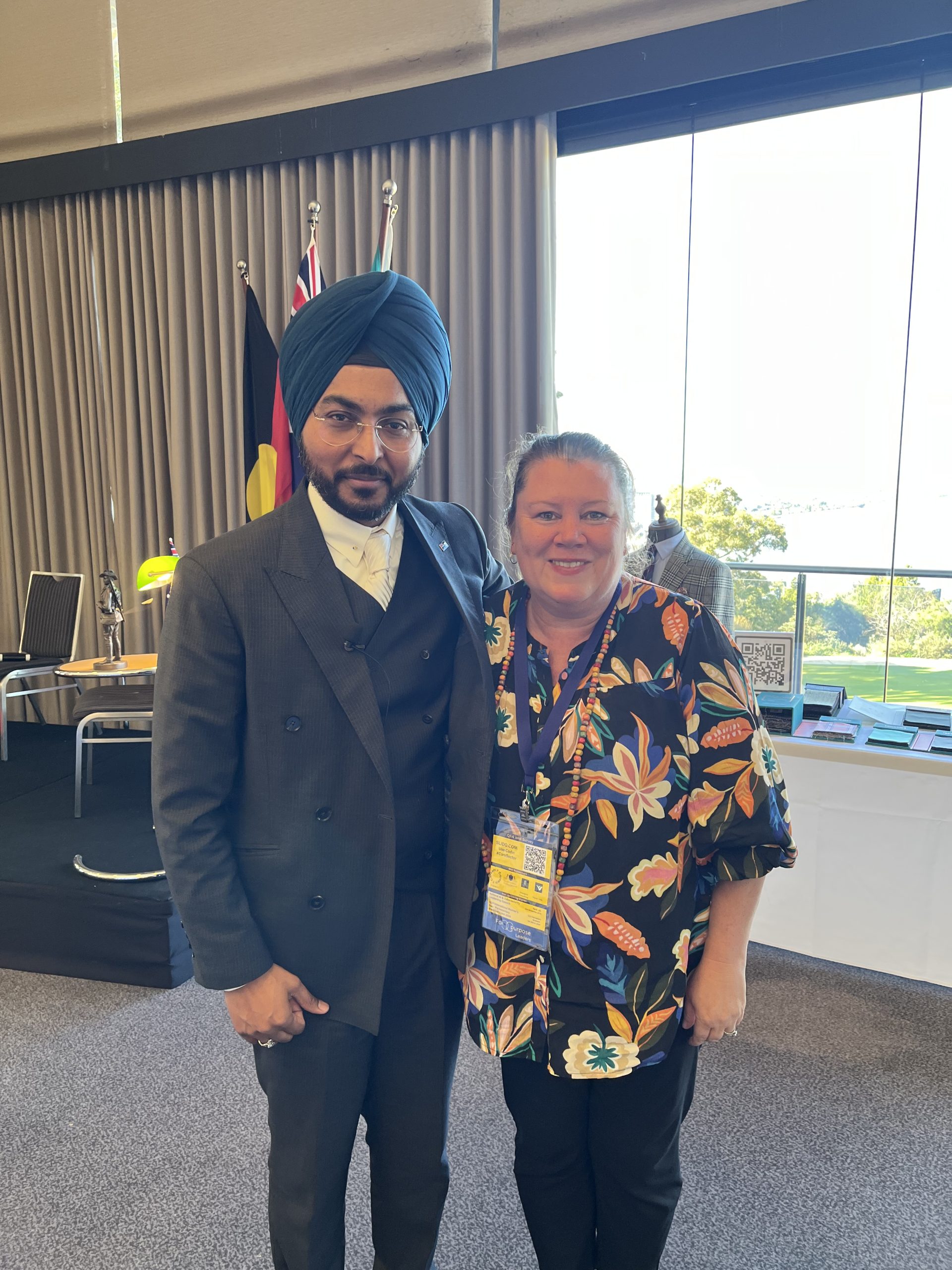National Care & Support Sector Conference 2025

Wayahead CEO, Sharon Grocott addresses The National Care and Support Sector Conference
The National Care & Support Sector Conference 2025 was held on July 25th at the State Reception Centre in Perth, Australia. The conference, organised by Dev Singh, a social strategist and Director of Public Policy at for Purpose Leaders, brought together approximately 400 attendees (250 in-person and 150 online) from various sectors. Attendees represented all States and Territories, 45% from outside Western Australia.
The Australian care and support sector encompasses a broad range of services and workers dedicated to improving the lives of individuals across various life stages and needs. It includes those providing aged care, disability support, veterans’ care, and early childhood education and care.
The National Care & Support Sector Conference 2025 demonstrated a deliberate effort to move beyond a siloed approach, extending its reach to encompass a broader ecosystem of related services. Attendance included representatives from sectors such as alcohol and drug services, family and domestic violence support, training and education providers, and employment services. This cross-sectoral participation highlighted the interconnectedness of these areas and the shared challenges in providing holistic support.
Dev invited me to address the conference on the vital need for integrating mental health considerations into Australia’s care and support sector, highlighting the significant impact of mental health and wellbeing across all ages and service needs. Several audience members spoke personally and expressed appreciation for the opportunity to hear a lived-experience perspective and witness its application in challenging systemic issues.
The conference addressed critical issues within the Australian care and support system, focusing on key themes:
• Reimagining care models.
• Reshaping funding and governance.
• Elevating quality and safeguarding.
• Strengthening workforce and regulation.
• Advancing technology and digital transformation.
The Director General, Dr. Tedros Adhanom Ghebreyesus, World Health Organisation, provided the keynote opening, stating how the conference is a reminder of how care and support are the backbone of a healthy society. The sector is characterised by a complex interplay of government regulation, funding models, and provider responsibilities, all aimed at delivering quality care and support.
The key take-aways included:
• Moving away from a “one size fits all” approach towards more individualised and person-centered care. This was highlighted by Russell Bricknell, CEO of Juniper, who noted the limitations of standardised models in aged care. The shared reliance on a medical model creates synergies between the mental health and aged care systems.
• The need for culturally safe approaches, particularly in child protection, was emphasised by Catherine Liddle, CEO of SNAICC, who highlighted the potential for improved outcomes through First Nations-led solutions.
• The conference explored the need for flexible funding models, particularly for remote and rural areas, as discussed by Monica Taylor, Deputy Commissioner of the Mental Health Commission Western Australia. The importance of community-led solutions and community-designed systems was also highlighted.
• Michael Chester, Co-CEO, Uniting Western Australia stressed the importance of upholding dignity and choice to improve safeguarding and quality of care. The need for a balance between regulations and choice was discussed, acknowledging that excessive regulations can limit individual choice for service users.
• A national strategy for strengthening the care workforce was advocated, emphasising the need for real-time data and strategic planning. Amaresh Devanesen, Executive Director Y Careers, addressed the challenges of an aging workforce and the need to integrate and train Gen Z and prepare for Gen Alpha. The existence of transferable skills across sectors was also noted.
• Dr Gill Walker, CEO. Technology for Ageing and Disability Western Australia, discussed the responsible integration of technology, emphasising the importance of ethical AI and ensuring that technology enhances, rather than replaces, human care.
Common themes emerging across all topics included:
• Person-centered care: Prioritising individual needs over being program centric (standardised programs).
• Community-led solutions: Empowering communities to codesign and implement care systems.
• National workforce strategy: Developing a comprehensive plan to strengthen the workforce.
• Ethical technology integration: Utilising technology responsibly to enhance, not replace, human care.
• Collaboration across sectors: Fostering partnerships between State/Federal government agencies and diverse community organisations.
• Focus on outcomes: Prioritising positive outcomes over profit and incentives.
• Addressing social determinants: Considering the impact of social factors on mental health. Factors like economic stability, education access, social and community context, healthcare access, and the physical environment were discussed.
Greater investment in community care is needed to lead to stronger, healthier communities overall. Dev Singh plans to compile a paper based on the conference workshops, which will be shared with the Australian Government Department of Prime Minister and Cabinet. This paper will further elaborate on the key findings and recommendations from the conference.
Sharon Grocott
Wayahead CEO
Newsletter
Stay up to date
Sign up to our Mind Reader newsletter for monthly mental health news, information and updates.